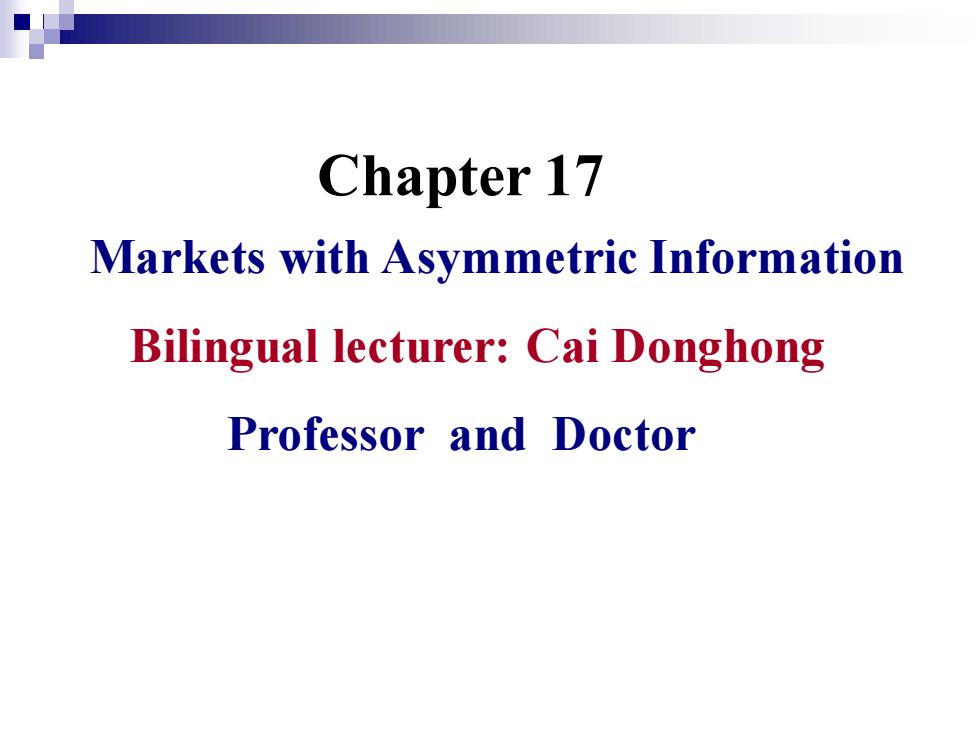
Chapter 17 Markets with Asymmetric Information Bilingual lecturer:Cai Donghong Professor and Doctor
Chapter 17 Markets with Asymmetric Information Bilingual lecturer: Cai Donghong Professor and Doctor
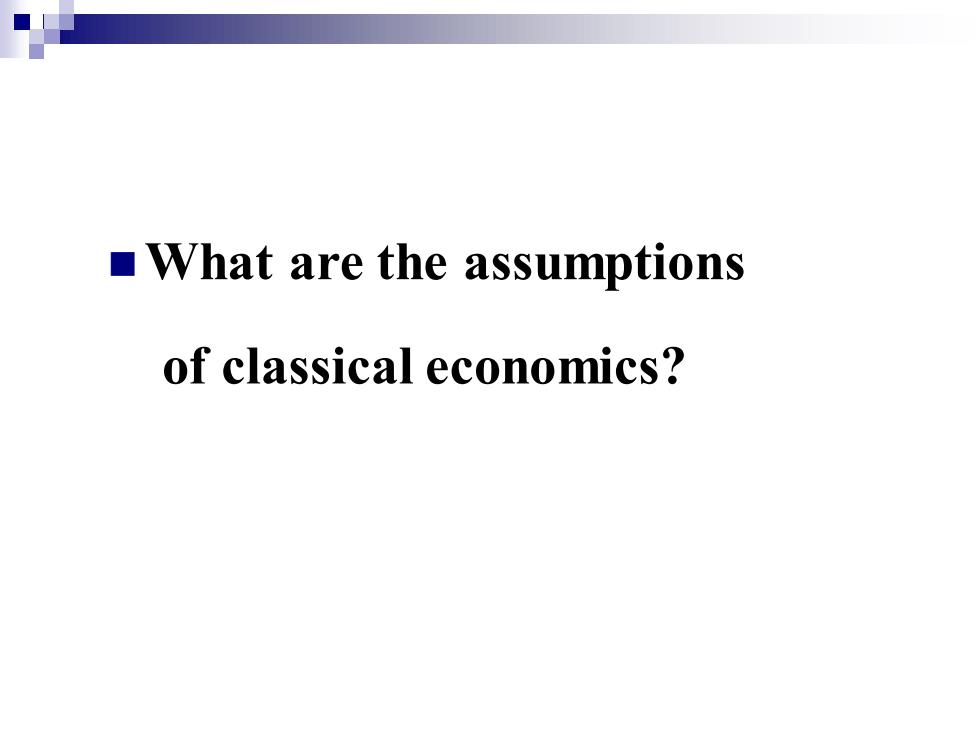
What are the assumptions of classical economics?
◼What are the assumptions of classical economics?

For most of the book,we have resumed that consumers and producers have complete information about the economic variables that are relevant for the choices they face
For most of the book, we have resumed that consumers and producers have complete information about the economic variables that are relevant for the choices they face

Chapter Outline a1 Asymmetric information(非对称信息) 口2 Adverse selection(逆向选择) ▣3 Market Signaling(市场信息传递) 口4 Moral Hazard(道德风险) 口5 The Principal-Agent Problem(倭托代理问题)
1 Asymmetric information (非对称信息) 2 Adverse selection(逆向选择) 3 Market Signaling (市场信息传递) 4 Moral Hazard (道德风险) 5 The Principal-Agent Problem (委托代理问题) Chapter Outline
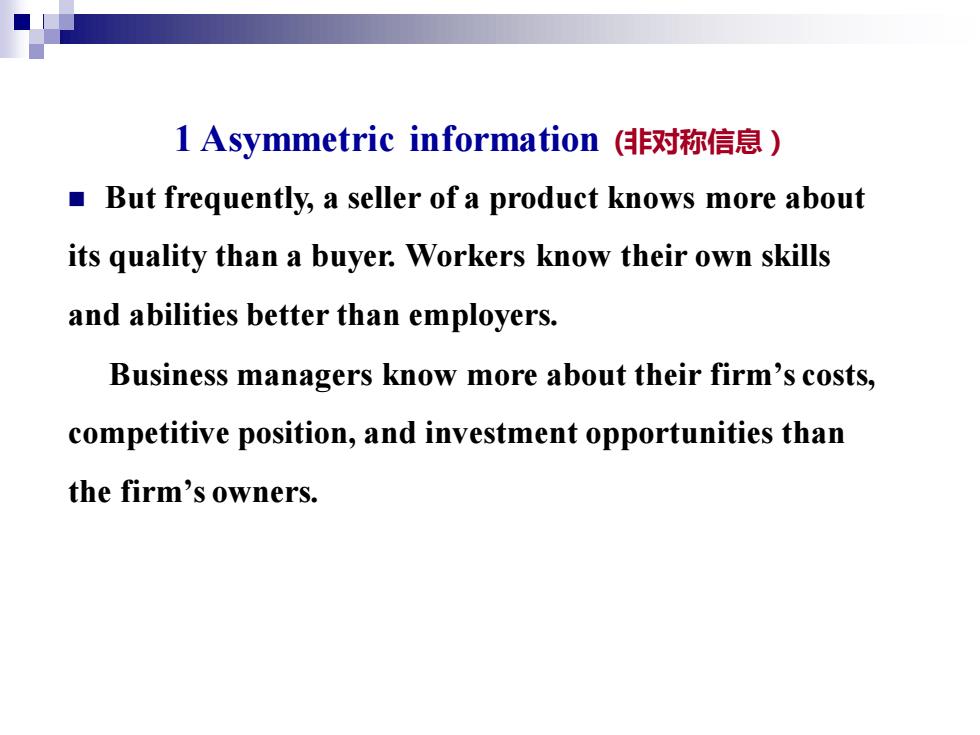
1 Asymmetric information(非对称信息) But frequently,a seller of a product knows more about its quality than a buyer.Workers know their own skills and abilities better than employers. Business managers know more about their firm's costs, competitive position,and investment opportunities than the firm's owners
1 Asymmetric information (非对称信息) ◼ But frequently, a seller of a product knows more about its quality than a buyer. Workers know their own skills and abilities better than employers. Business managers know more about their firm’s costs, competitive position, and investment opportunities than the firm’s owners

The situation is called asymmetric information,that is to say, the parties concerned possess different information about a transaction. The very fact that a used car is for sale indicates that it may be a "lemon"-why sell a reliable car?because there exists quality uncertainty and lemons market for used cars
The situation is called asymmetric information, that is to say, the parties concerned possess different information about a transaction. The very fact that a used car is for sale indicates that it may be a “lemon” –why sell a reliable car? because there exists quality uncertainty and lemons market for used cars
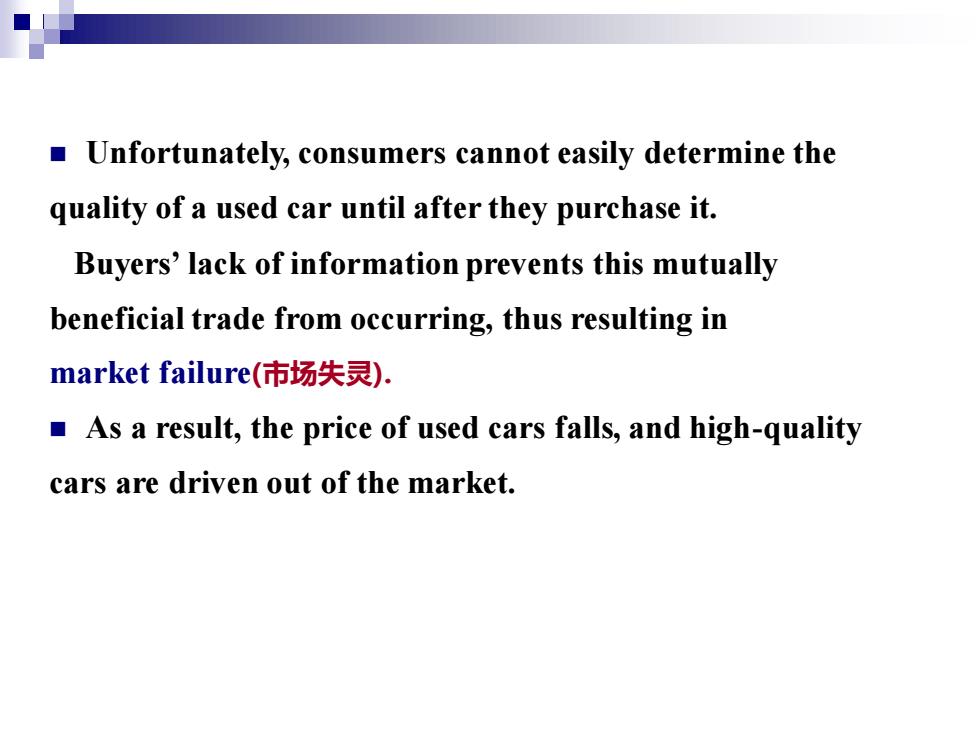
Unfortunately,consumers cannot easily determine the quality of a used car until after they purchase it. Buyers'lack of information prevents this mutually beneficial trade from occurring,thus resulting in market failure(市场失灵). As a result,the price of used cars falls,and high-quality cars are driven out of the market
◼ Unfortunately, consumers cannot easily determine the quality of a used car until after they purchase it. Buyers’ lack of information prevents this mutually beneficial trade from occurring, thus resulting in market failure(市场失灵). ◼ As a result, the price of used cars falls, and high-quality cars are driven out of the market
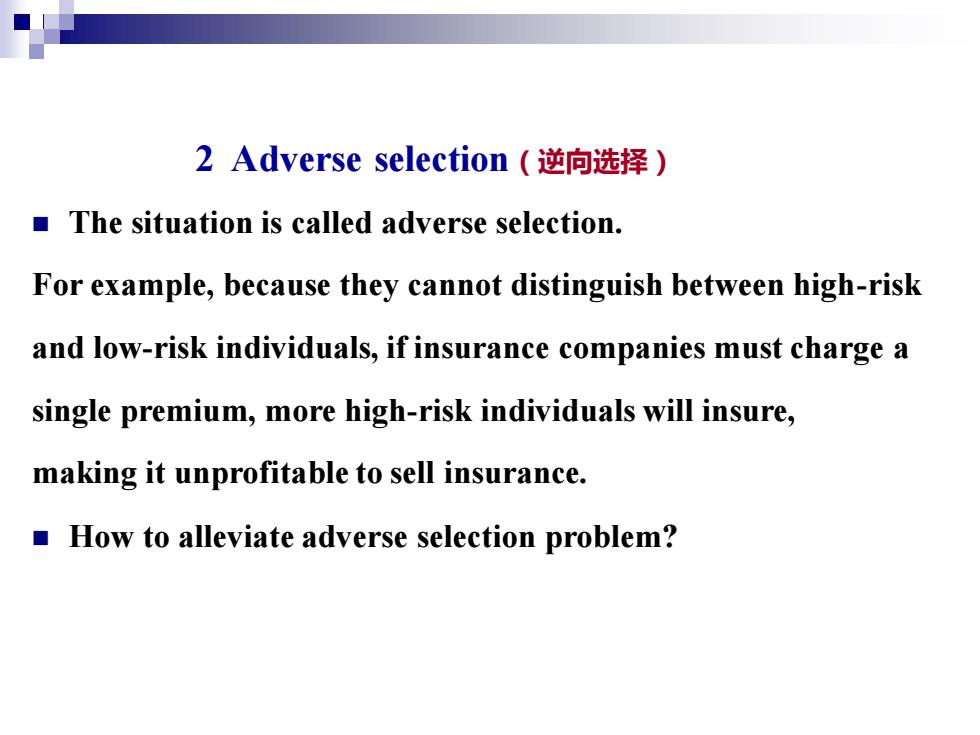
2 Adverse selection(逆向选择) The situation is called adverse selection. For example,because they cannot distinguish between high-risk and low-risk individuals,if insurance companies must charge a single premium,more high-risk individuals will insure, making it unprofitable to sell insurance. How to alleviate adverse selection problem?
2 Adverse selection(逆向选择) ◼ The situation is called adverse selection. For example, because they cannot distinguish between high-risk and low-risk individuals, if insurance companies must charge a single premium, more high-risk individuals will insure, making it unprofitable to sell insurance. ◼ How to alleviate adverse selection problem?

3 Market signaling(市场信息传递) Maybe the answer is guarantees and warranties. Guarantees and warranties effectively signal product quality because an extensive warranty is more costly for the producer of a low-quality item than for the producer of a high-quality item.The low-quality item is more likely to require servicing for free under the warranty
3 Market signaling (市场信息传递) ◼ Maybe the answer is guarantees and warranties. Guarantees and warranties effectively signal product quality because an extensive warranty is more costly for the producer of a low-quality item than for the producer of a high-quality item. The low-quality item is more likely to require servicing for free under the warranty
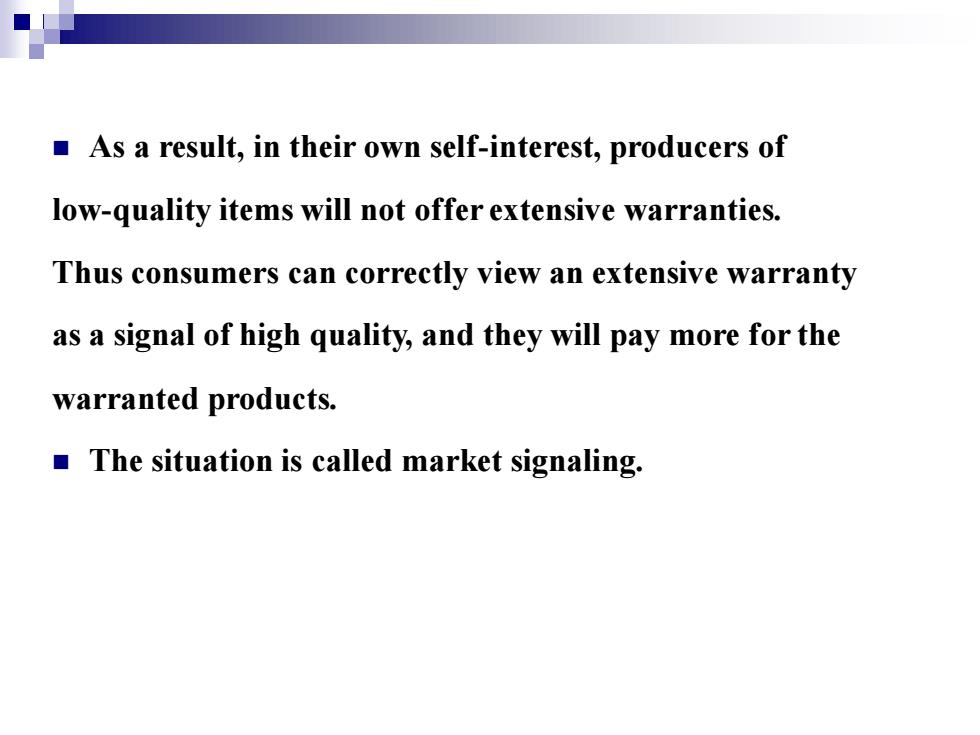
As a result,in their own self-interest,producers of low-quality items will not offer extensive warranties. Thus consumers can correctly view an extensive warranty as a signal of high quality,and they will pay more for the warranted products. The situation is called market signaling
◼ As a result, in their own self-interest, producers of low-quality items will not offer extensive warranties. Thus consumers can correctly view an extensive warranty as a signal of high quality, and they will pay more for the warranted products. ◼ The situation is called market signaling